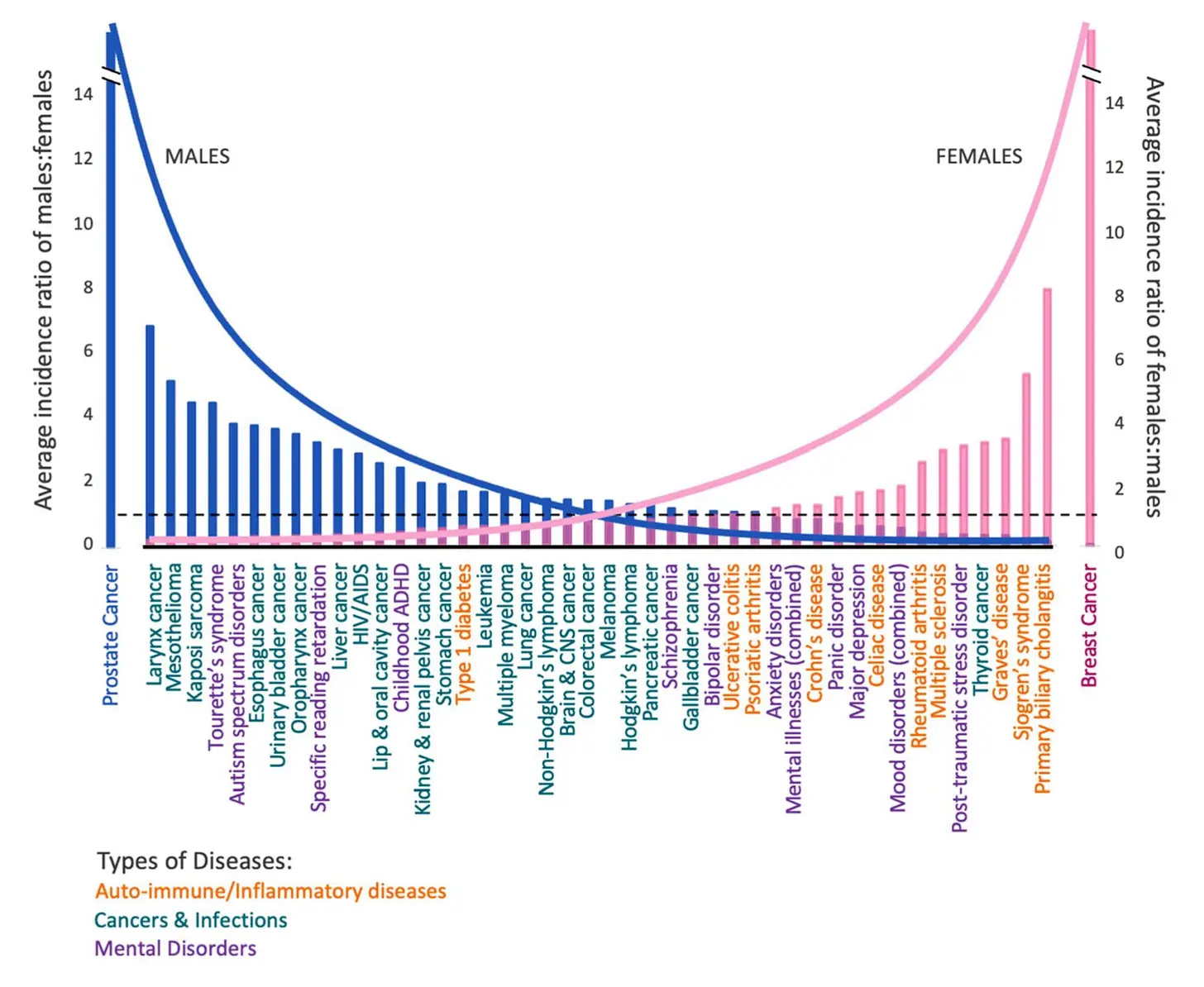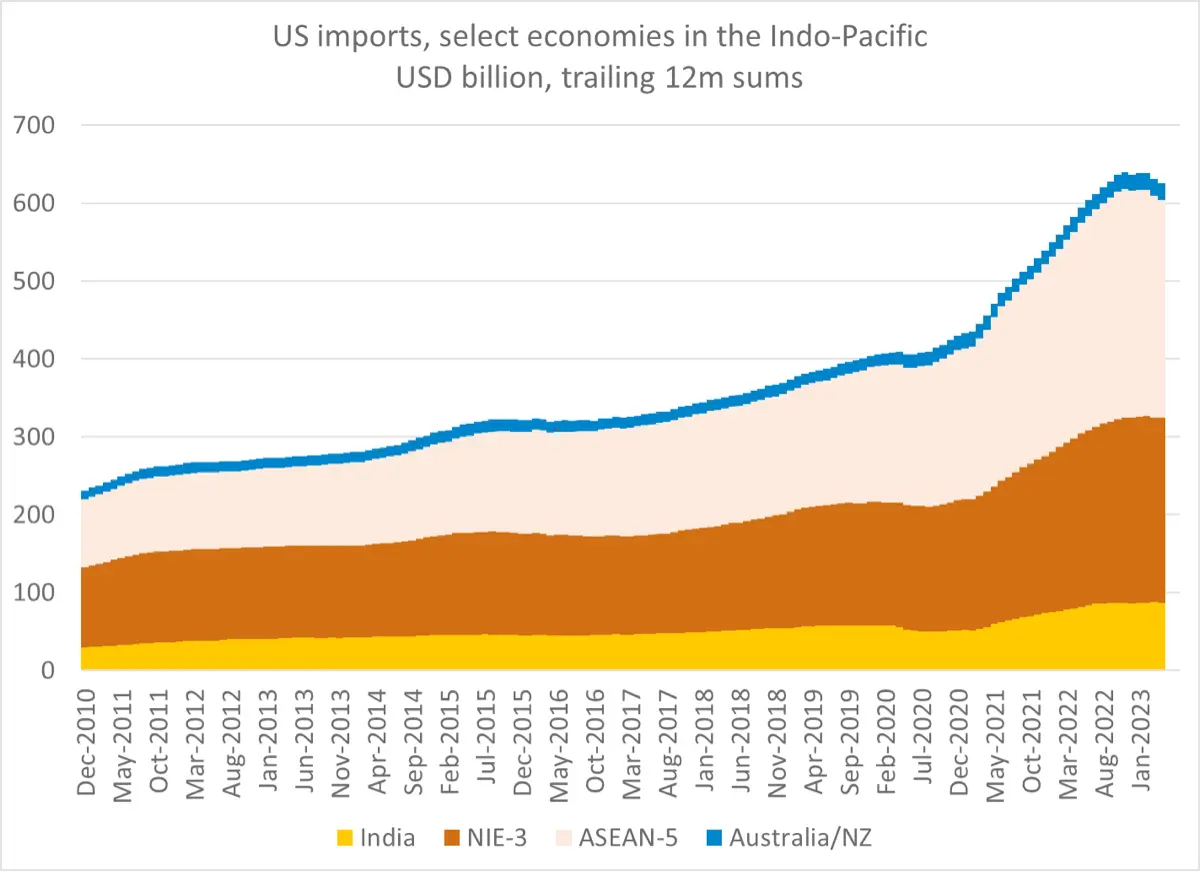Links - May & June 2023
Published Jun 2023
 David Park, Flower Market, 1955
David Park, Flower Market, 1955
Here are some interesting links I found in May & June:
- Lessons from 'The Years of Lyndon Johnson' by Robert Caro.
- If, however, the senator said his constituency would not permit him to give that support, that if he gave Kennedy the vote he needed, the vote might cost him his seat in the Senate,
“Kennedy would finally say he was sorry they couldn’t agree, but he understood.” Lyndon Johnson, Jackson would say—and Jackson worked closely with Johnson as Representative and Senator for twenty-five years—
Lyndon Johnson wouldn’t understand, would refuse to understand. He would “charm you or knock your block off, or bribe you or threaten you, anything to get your vote,” Jackson would say.
He would do anything he had to, to get that vote. “And he’d get it. That was the difference.
- Herpes zoster vaccination prevents a proportion of dementia cases.
- Education and intelligence.
- Over the last 50 years in developed countries, evidence has accumulated that only about 10% of school achievement can be attributed to schools and teachers
while the remaining 90% is due to characteristics associated with students.
Teachers account for from 1% to 7% of total variance at every level of education.
For students, intelligence accounts for much of the 90% of variance associated with learning gains. This evidence is reviewed.
- IQs of Nazi leaders.

- Among the 21 individuals tested, the average was 128 – just under 2 standard deviations above the mean.
Interestingly, the highest score of 143 was attained by Hjalmar Schacht, an economist who helped spur Germany’s “economic miracle” but who resigned his post in 1939 and was later arrested by the Gestapo.
Schacht was acquitted of all charges at Nuremberg.
- Does therapy really work?
- Pim Cuijpers, a professor of clinical psychology at Vrije University in Amsterdam, co-wrote a 2021 meta-analysis confirming that therapy was effective in treating depression compared with controls,
but he also found that more than half of the patients receiving therapy had little or no benefit and that only a third entered “remission”
(meaning their symptoms lessened enough that they no longer met the study’s criteria for depression).
- A blunter assessment of short-term therapies appears in a 2022 paper published by Falk Leichsenring and Christiane Steinert,
psychotherapists and researchers affiliated with universities in Germany, who surveyed studies comprising some 650,000 patients suffering from a broad range of mental illnesses. “After more than half a century of research” and “millions of invested funds,” they wrote, the impact that therapy (and medication, for that matter) had on patients’ symptoms was “limited.”
- Turkey at the crossroads?
- Britain is dead.
- Sex differences in the developmental trajectories of impulse control and sensation-seeking.
- A male does not acquire the impulse control level of a 10 year-old female until around the age of 25.
- Origin of sex-biased mental disorders.

- The US Air Force is moving fast on AI-piloted fighter jets.
- On the reign of Cleopatra.
- Notes on Nigeria.
- Abacha’s “so dumb it might work” scheme was to send somebody to the office that held the official records of Babangida’s decrees and backdate his resignation by 24 hours,
thus negating all of his other decrees, including his transfer of power to the new president.
- Abacha sent the agent, changed the paperwork, and then went to a radio station to announce that Nigeria technically didn’t have a leader.
After all, Babangida had resigned before transferring power.
Check the paperwork if you don’t believe him. Since Nigeria can’t fall to anarchy, Abacha announced that he was taking control of the country. Indefinitely.
- In the 1970s, as Nigeria began to rake in oil money, the government greatly expanded the military’s budget.
Unsure exactly what to do with all this money, generals began making sizable cement orders.
In one year, the Ministry of Defense officially needed 2.5 million tons of cement;
individual generals cumulatively ordered over 16 million tons, with virtually all of the purchases containing huge kickbacks between the cement companies and the generals.
By April 1975, there was a backup of 105 ships (mostly carrying cement) in the Lagos harbor.
Two months later, there was a line of 455 ships covering 50 miles. Every single ship charged fees to the Nigerian government for making them wait.
The “Cement Armada” had enough cement to rebuild Lagos three times.

- Chernobyl revisited.
- A similar study was conducted in the Iranian city of Ramsar, which has the highest measured background radiation levels
in the world at up to 200 times higher than the global average. Researchers found
that Ramsar residents actually had lower rates of cancer than the control groups.
- Discussion on eugenics.
- In 1975, India had a worse-than-usual economic crisis and declared martial law. They asked the World Bank for help.
The World Bank, led by Robert McNamara, made support conditional on an increase in sterilizations. India complied.
- Force was not only physical in form but also indirect.
The government issued circulars stating that promotion and payments to employees were in abeyance until they were sterilized or completed their assigned quota of people they convinced to undergo sterilization.
People had to produce a certificate of sterilization to get their salaries or even renew their driving/ rickshaw/scooter/sales tax license.
Students whose parents had not undergone a sterilization were detained. Free medical treatment in hospitals was also suspended until a sterilization certificate was shown.
Those who suffered the most were people associated with lower classes.
These unfortunate people were picked up from railway stations or bus stops by policemen, regardless of their age or marital status.
Poor, illiterate people, jail inmates, pavement dwellers, bachelors, young married men, and hospital patients were all victims.
- In the end about eight million people were sterilized over the course of two years.
No one will ever know how many were “voluntary” by standards that we would be comfortable with, but plausibly well below half.
- What if they gave an industrial revolution and nobody came?
- Early Newcomen engines consumed ~45 pounds of coal per horsepower-hour; the most efficient engines of the late 1800s used less than *one* pound
- How America took out the Nord stream pipeline.
- Back in Washington, planners knew they had to go to Norway.
“They hated the Russians, and the Norwegian navy was full of superb sailors and divers who had generations of experience in highly profitable deep-sea oil and gas exploration,”
the source said. They also could be trusted to keep the mission secret. (The Norwegians may have had other interests as well.
The destruction of Nord Stream—if the Americans could pull it off—would allow Norway to sell vastly more of its own natural gas to Europe.)
- Ministers had secret unit to curb lockdown dissent.
- Using deep learning to predict ideology from facial photographs.
- Women with attractive faces were more likely to be right-wing, while women whose faces showed contempt were more likely to be left-wing.
- Understanding the NHS crisis.
- Crocodile found to have made herself pregnant.
- Dr Booth analysed the foetus and found that it was more than 99.9 % genetically identical to its mother - confirming that it had no father.
- US trade with the Indo-Pacific actually accelerated after the US said no to TPP.
- US imports have doubled in dollar terms since the end of 16.

- On the Russian war.
- Azar Gat is probably right to suggest that the long peace is itself a consequence of the changing incentives created by the industrial revolution and to an even greater extent,
by nuclear weapons. Prior to the industrial revolution, war was the best way to get rich (if you won) because land and conquered subjects were so much more valuable
than any kind of capital investment (infrastructure, manufacture, tools, etc.) that could have been developed with the same resources.
The industrial revolution changes this, both by making war a lot more destructive (thus lowering returns to successful warfare)1 while at the same time massively
raising returns to capital investment in things like infrastructure, factories and tractors. It suddenly made more sense, if you coveted your neighbors resources,
to build more factories and buy those resources than to try to seize them by force. Nuclear weapons in turn took this same effect and ratcheted it up even further,
by effectively making the co
- Coup proofing’ of this sort follows a fairly consistent basic model (which I may elaborate on at a later date).
First, command needs to be *divided* so that no one general or minister of defense can turn the whole defense apparatus against the leader.
You can see this with how the Russian armed forces were fragmented, with Rosgvardiya and Wagner Group not reporting to the ministry of defense,
but it also extends to the structure of the Russian Ministry of Defense, where the Army, the Navy *and* the Airborne forces (the VDV) *all* maintain infantry forces.
Setting things up that way means that, in a pinch perhaps elite, well-paid and loyal VDV forces could be used to counter-balance grumbling disloyalty in, say, the army.
Of course such fragmented command is *really bad* if you need to launch a conventional war, as, in the event, it was.
- Shipping sulpur emissions and unintended consequences.
- On January 1st 2020 new shipping regulation came into effect (#IMO2020), decreasing the maximum amount of sulfur in shipping fuels from 3.5% to 0.5%.
From 2020 we see a rapid increase in the amount of solar radiation that's being absorbed by the region highlighted above.
